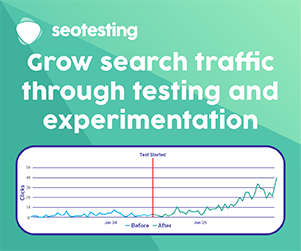Our latest digital marketing news roundup features host Erin Sparks and Creative Studio Producer Jacob Mann along with special guest Niklas Stephenson of Legal Monster to sort through some of the recent headlines. Here’s the news roundup from Episode 334 of the award-winning EDGE of the Web podcast:
Google Ads intros ‘restricted data processing’ capability for CCPA compliance
From Ginny Marvin on Marketing Land we learn that Google Ads intros ‘restricted data processing’ capability for CCPA compliance. Google will offer restricted data processing to enable businesses to comply with the California Consumer Privacy Act (CCPA). Restricted data processing, Google explained, will “restrict how it uses certain unique identifiers, and other data processed in the provision of services to you, to only undertake certain business purposes.”
compliance. Google will offer restricted data processing to enable businesses to comply with the California Consumer Privacy Act (CCPA). Restricted data processing, Google explained, will “restrict how it uses certain unique identifiers, and other data processed in the provision of services to you, to only undertake certain business purposes.”
- Erin Sparks: The CCPA is the state of California’s version of Europe’s GDPR (general data protection regulation). It goes into effect January 1, 2020. On the home page of their websites, businesses covered by this regulation have to give California residents the ability to opt out of the sale of their personal data. It also applies to companies that are business-to-business enterprises if they meet certain criteria: Having annual gross revenue of at least $25 million buy, receive or sell personal data of at least 50,000 consumers, households or devices, and derive at least 50% of their annual revenues from selling personal data. So this will affect some biggies, like Facebook and Twitter.
- Niklas Stephenson: This is interesting because it’s the first piece of legislation in the US that is really like a modern privacy law. We have been hit by it for over a year in Europe with the GDPR, which is way broader. CCPA is a fairly small piece of legislation compared to GDPR, and yet American companies are in a panic because they have very little time to figure out how to be compliant. And this is just a first small step in something huge.
- Erin Sparks: And of course a law like this in California often signals what will happen at the federal level.
- Niklas Stephenson: I think something has already been introduced in the Senate.
- Erin Sparks: Given the size of California’s population, this regulation will have an impact on the ability of those businesses to retarget and build look alike audiences based on site visitors, customers on a potential sizable percentage of their potential audience. California represents actually 12% of the U.S. Population. So you just better get your house in order.
- Niklas Stephenson: One thing with the CCPA is that they use the term selling data all the time, but that’s so hard for people to understand. And the definition is so broad. If you’re transferring data to any kind of third party and they’re getting any kind of value out of it other than the service they’re providing you, then it’s basically selling data according to CCPA.
- Erin Sparks: So, for example, if I’m loading up my Mailchimp with 50,000 users, right? And I’m about to start sending the campaign. There is data out of that behavior that Mailchimp’s understanding. And there’s value that they’re deriving not from just servicing your EMS, right?
- Niklas Stephenson: Yes, there is value creation for Mailchimp as a company and therefore you are “selling” your data to Mailchimp.
- Erin Sparks: And you’re not covered by Mailchimp’s CCPA compliance, your company has to have it’s own CCPA compliance.
Google Search Result Rankings Had A Very Volatile Week
According to Barry Schwartz on Search Engine Roundtable, Google Search Result Rankings Had A Very Volatile Week. “All week long, people have been asking if there was a Google update today. Truth is, it feels like tremors all week long. The chatter and tracking tools seem to confirm this as well.”
- Erin Sparks: It does look like there’s been a good deal of volatility at least for this small set of data people have looked at so far. But I don’t think we have had a month where we have NOT had a sizable change in Google’s algorithm, whether core updates or minor updates. I think it’s kind of par for the course now.
- Jacob Mann: I’m new enough to this SEO field that the constant changes are all I’ve ever known, so it doesn’t feel new or different from what’s normal to me.
- Niklas Stephenson: Yes, the good old days of just putting together some content and ranking number one are long gone. I miss those days. I used to be VP of Growth at Trustpilot where SEO is the powerhouse of everything they do. Their whole funnel starts with organic search. Everyone is doomed by whatever Google does. You can never prepare. You just have to see what happens every day and deal with it. It’s like a war. But I think you should also always focus on building those extra channels, right? Getting away from Google being a 95% of your business because they either change the algorithm or close down the service you’re using or whatever they do because they, as all of us, change all the time, right? If it’s a big core part of your business, you just need to invest in being ready to react when they change something because they do it all the time.
Vanishing Messages Muddle E-Discovery for Attorneys, Judges
On Bloomberg Law, Sam Skolnik reports how Vanishing Messages Muddle E-Discovery for Attorneys, Judges. Corporations and their outside counsel increasingly must decide whether to allow the use of apps that send disappearing messages, because these apps can ensnare companies in e-discovery disputes.
- Erin Sparks: Corporations who allow the use of apps like Snapchat, Wickr, WhatsApp, and Signal need to be careful. The issue is that there is a duty to preserve communications that could become evidence in the legal proceedings, and these apps make those messages go away. A judge in a courtroom could view that with suspicion.
- Niklas Stephenson: Looking at the B2B side, of course you need to adhere to the compliance rules and you should really think about your internal communication and how that could be stored in a way so you adhere to the law. It’s a totally different issue on the consumer side, though, where people feel they have a privacy right for their personal messages to not be stored or preserved. But on the business side there can be high stakes around trade secrets and theft. For example, the race to develop self-driving car technology. Google sued Uber for stealing its self-driving car technologies, and in discovery it was learned that Uber instructed its people to use Wickr when discussing self-driving car technology, even in spite of knowing Google would sue them. And the judge ruled that Uber had a legal obligation to preserve those communications.
Connect with Niklas Stephenson and Legal Monster
Twitter: @nikstep (https://twitter.com/nikstep)
LinkedIn: https://www.linkedin.com/in/niklasstephenson
LM Website: https://www.legalmonster.com
LM Twitter: @legalmonster (https://twitter.com/legalmonster)
LM LinkedIn: https://www.linkedin.com/company/legalmonster
LM Facebook: https://www.facebook.com/Legal-Monster-310844502852394
LM Instagram: @legalmonster_com (https://www.instagram.com/legalmonster_com)
The EDGE Newsletter Delivers Digital Marketing News You Can Use
Don’t have time to listen to the EDGE of the Web podcast but want our insightful analysis of digital marketing news? Go to EDGEofthewebradio.com and you’ll see the subscribe box at the very top of the page. It’s free-of-charge, and we will never use your email for anything except sending you the newsletter. You can also sign up by texting the word “EDGETalk” to 22828, but not while you’re driving! Enjoy these digital nuggets of gold from the EDGE – your source for digital marketing news.






















